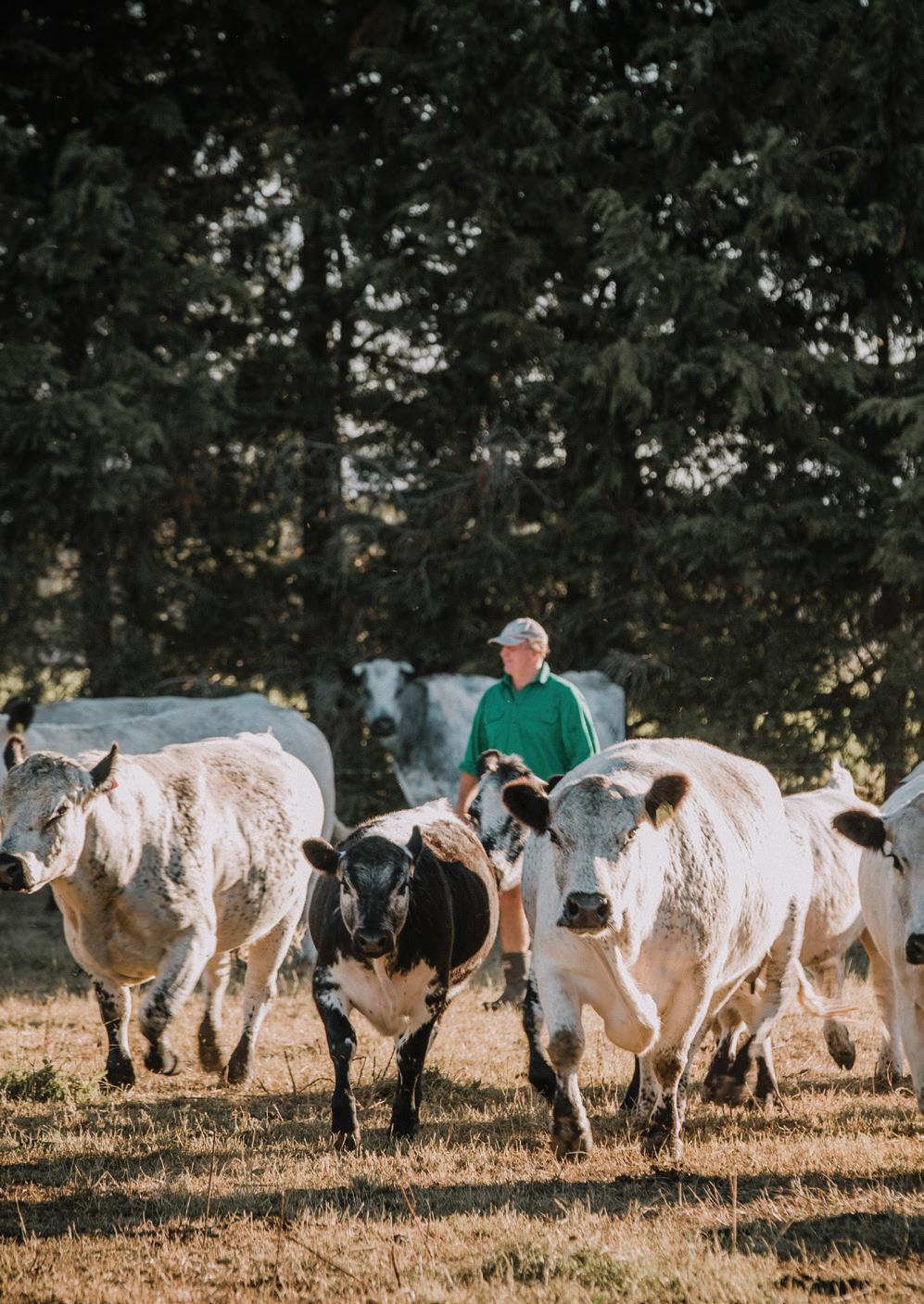WELLBEING
Meeting the need WELLBEING IS OFTEN TAKEN FOR GRANTED, UNLESS YOU ARE IN A RUT, THE WHEELS ARE FALLING OFF AND LIFE IS A DAILY STRUGGLE. FOR GOLDEN BAY DAIRY FARMER, WAYNE LANGFORD, HAVING THE WHEELS FALL OFF TURNED OUT TO BE ONE OF THE BEST THINGS THAT COULD HAVE HAPPENED, NOT ONLY TO HIM, BUT TO THE HUNDREDS OF NEW ZEALAND FAMILIES WHO HE HAS BEEN ABLE TO HELP. WORDS BY RACHAEL RICKARD, IMAGES SUPPLIED
YOU ONLY LIVE ONCE (YOLO) On Wayne Langford’s 34th birthday he had, what he describes as, an out of body experience. One which made him question everything about his life. As dairy farmer, husband to Tyler and father to three boys, Lewis (14), Gordie (12) and Alfie (11), Wayne puts it “We were in a rut, and mentally, I was in a horrible spot. I thought ‘what am I doing here, I’ve got to get us out of this.” So, in 2017 the Langford family set out to change. They decided that for the next 365 days they would challenge themselves to “have ‘lived’ by the end of every day!” They embarked on a journey of self-discovery, love, giving, gratitude, pride, and learning. They launched the YOLO Farmer Facebook page and a year later they agreed they didn’t want to stop. Three years on, hundreds of adventures and over 25,000 followers later, YOLO Farmer is a thriving online community with the Langford’s sharing their stories, which link to the Five Ways to Wellbeing. The Five Ways to Wellbeing were created through the New Economics Foundation’s Foresight Project on Mental Capital and Wellbeing research report. The review of the most up-to-date evidence found that building five actions into our daily lives is important for the wellbeing of individuals, families, communities, and organisations. These are: 1. Connect, me whakawhanaunga; 2. Give, tukua; 3. Take notice, me aro tonu; 4. Keep learning, me ako tonu; 5. Be active, me kori tonu. Fast forward to day 556 of YOLO Farmer, Wayne found himself with two heifers needing to be put down and more meat than he needed. He was living closely aligned with ‘giving’ and ‘taking notice’ that he realised no one in Golden Bay should go hungry, and he knew he could do something about it. “I called the local foodbank, and a few things became apparent. Firstly, a cull cow would last the foodbank an entire year and although volunteers were incredibly grateful it was hard for them to deal with the various cuts and volume of meat from a beast in one go. Logistically hard for foodbanks to manage an unexpected one-off bulk supply of meat. Secondly, for this to make a real difference, what the foodbanks needed was the right cuts of meat and definite food security,” Wayne said. “I thought about it and there is no real reason why anyone in New Zealand should go hungry. The best gift we, as farmers, can give to any Mum or Dad who is struggling, is a hand to put a meal on the table for their kids,” Wayne said. And thus, the concept of Meat the Need was born.
WHAT IS MEAT THE NEED? Meat the Need is a national Charitable Trust designed to supply meat to City Missions and food banks. The meat is donated by farmers, processed, packed, and delivered to those most
52
RE AL FARM E R



















